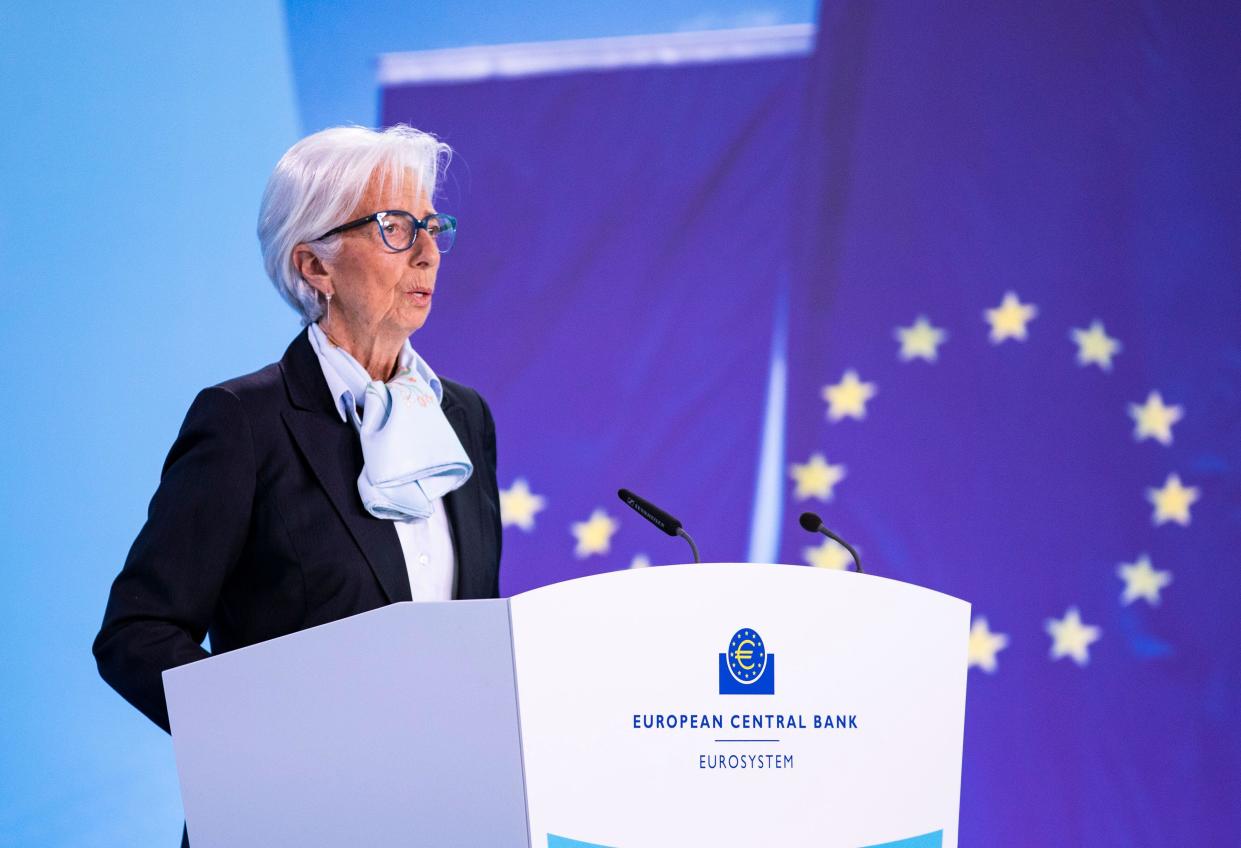Eurozone inflation eases to 2.4% raising hopes for interest rate cuts

Eurozone inflation slowed to 2.4% last month, reinforcing expectations that the European Central Bank (ECB) will cut interest rates in June.
According to Eurostat, the statistical office of the European Union, inflation in the 20 nations fell 0.2% from 2.6% in February, in line with a preliminary estimate released earlier this month. It marked a four-month low.
Underlying price growth, which filters out volatile food and energy prices, dropped from 3.1% to 2.9%, despite services inflation holding steady at 4%.
During March, services saw the highest yearly increase at 4% compared to February. Following this was food, alcohol, and tobacco at a rate of 2.7%, down from 3.9% in the previous month.
Meanwhile, non-energy industrial goods rose by 1.1%, a decrease from 1.6% in February, and energy prices experienced a decrease of 1.8%, which was less steep than February's 3.7% drop.
Euro area annual #inflation at 2.4% in March 2024, down from 2.6% in February 2024 https://t.co/9jqBgGskMGpic.twitter.com/3GJl5SxzvH
— EU_Eurostat (@EU_Eurostat) April 17, 2024
Inflation has fallen quickly from its peak of 11.5% in October 2022 to near the central bank's target of 2% over the past year, raising hopes for interest rate cuts starting as early as June.
Money markets are now pricing in 75 basis points of rate cuts this year. Two months ago economists predicted that the central bank would make at least four or five cuts during 2024, each of at least 0.25%.
Last week, ECB president Christine Lagarde said: "If our updated assessment of the inflation outlook, the dynamics of underlying inflation and the strength of monetary policy transmission were to further increase our confidence that inflation is converging to our target in a sustained manner, then it would be appropriate to reduce the current level of monetary policy restriction.
She also maintained a neutral stance on rate cuts, deferring any decisions to June when "a lot more information" will be available. This was despite a "few members" being ready for a rate cut in April.
Read more: UK inflation drops to 3.2% in March as Bank of England hints at rate cuts
The latest data on Wednesday also revealed that the lowest annual rates were registered in Lithuania at 0.4%, Finland (0.6%) and Denmark (0.8%).
The highest annual rates were recorded in Romania, which came in at 6.7%, Croatia at 4.9%, and Estonia and Austria both at 4.1%.
Among other EU's Big Four, the inflation rate was above the EU average for Spain (3.5%) and France (3.4%) while Germany (3.1%) reported the same level as the EU. Inflation in the UK was 4.2%.
When compared with December, annual inflation fell in 15 EU countries, remained stable in one and rose in 11 others.
Watch: How does inflation affect interest rates?
Download the Yahoo Finance app, available for Apple and Android


